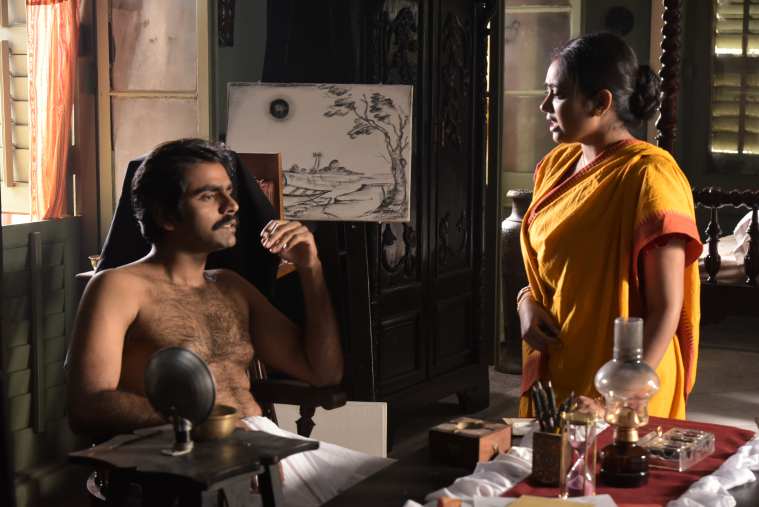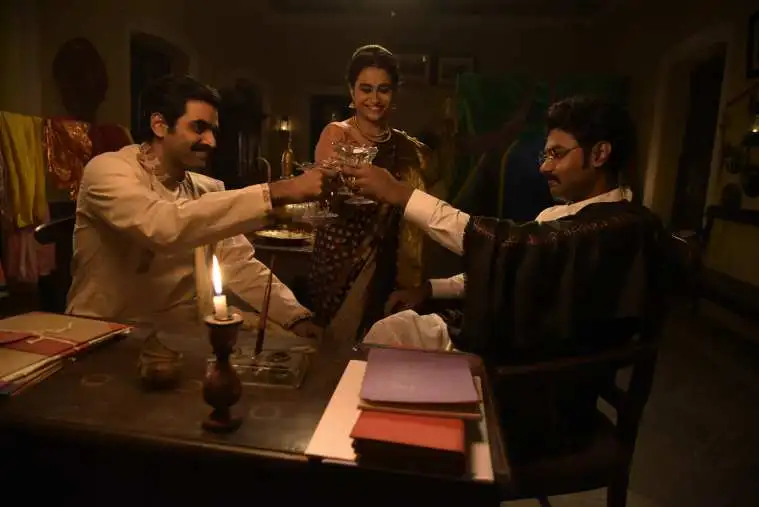Hiralal review: A middling biopic on Hiralal Sen, among pioneers of Indian cinema
This is a strange time for a film about films. With the pandemic keeping us away from theatres, we cannot be farther from the familiar experience of watching them. Distance, however, has made hearts grow fonder. Seen in such a light, Arun Roy’s Hiralal — a biopic on the first man to foray into making movies in India — comes at a bittersweet juncture. It is a reminder of the way things started before what seems to be a prolonged pause.
Dadasaheb Phalke’s exalted status as the Father of Indian cinema comes from making the first feature Raja Harishchandra in 1913. The parallel narrative to this features Hiralal Sen, a Bengali man believed to have made the first documentary, ad film and political film in India. Unlike Phalke, Sen’s life and accomplishments have largely eluded documentation. Roy seeks to redress this historical oversight with his latest film. But the result is an unsatisfactory outing where the joy relies largely on the novelty of the subject and not its depiction.
Little known about Sen despite his decisive accomplishments makes Hiralal a course correction by default; a necessary historical intervention. Chronicling the photographer’s life from early teenage to his death in 1917, the film serves as an accessible primer on the man, outlining his many gifts. But this becomes limiting when in spite of highlighting his gifts and the tragic ending of his untimely death in 1917 and work being engulfed by fire, it makes no space for Sen’s personal struggles.
 Chronicling the photographer’s life from early teenage to his death in 1917, the film serves as an accessible primer on the man, outlining his many gifts.
Chronicling the photographer’s life from early teenage to his death in 1917, the film serves as an accessible primer on the man, outlining his many gifts.
Having grown up in Calcutta, he was far-removed from Paris where the world’s first film was shown in 1895. Reportedly he became fixated with the new medium after watching one in 1898 at the Star Theatre, Calcutta. The story goes that he initially borrowed the director’s camera. In the film, however, after watching the first bioscope showcased by film producer and distributor Jamshedji Framji Madan, Sen (an impressive Kinjal Nanda) placed an order to import one. And then, as Roy shows, he started using it without mastering the device. This might seem like an insignificant discrepancy but it forms part of a bigger problem: the film deriving its depiction from the myth of Hiralal Sen.
Roy’s outing suffers from a constant awareness of the subject’s legacy. Instead of tracing the origin of his brilliance, Hiralal presents Sen’s genius as a fact from the beginning. For instance, his fascination with images is contextualised in a passing conversation between his parents. Later, when he demands a camera from his mother, his utterance of the foreign word is precise and exact, bearing no mark of his native accent. This could have qualified as a factual slip but the film underlines that Sen did know better by making the mother repeat the word as “kaamera”, like a Bengali at that time would. But then again no instance to support Sen’s awareness of the correct diction is included, the absence implying that just like technical skills, he knew things because he did. Because, as a hero he was supposed to. This assumption is further reflected with the exclusion of ways he might have overcome infrastructural limitations to screen movies at that time. By skipping over Sen’d failures along the way, the film reveals its own stilted understanding of a hero: one who does not become but is born as one.
 By establishing Sen as such without spotlighting failures along the way, the film reveals its own stilted understanding of a hero: one who does not become but is born as one.
By establishing Sen as such without spotlighting failures along the way, the film reveals its own stilted understanding of a hero: one who does not become but is born as one.
One might argue these obliterations to be narrative decisions, taken to economise storytelling. But in Hiralal, which runs for an overstretched two hours and thirty minutes, they point to the storyteller’s intent. Roy places Sen in a tumultuous time in history when Bengal was undergoing Partition (1905) and the country was in the throes of change. Seeds of modernity, of which bioscope was an offshoot, were sown in various fields. It was also when the theatre scene in Bengal was braving changing tides led by artist Amarendra Dutta. In fact Sen and Dutta collaborated to infuse bioscope with theatre which in essence was a confluence of moving images and story, a step closer to films we watch and understand today. Royal Bioscope Company, founded by Sen and his brother Motilal Sen, produced Dutta’s play Alibaba and the Forty Thieves. But in wanting to replicate all of this and not evoke, Roy crowds the narrative with unnecessary subplots, many of which contribute nothing to the larger picture.
This bloated narrative shrinks other crucial aspects of the story: Sen’s own relationship with the camera or his defining capture of Surendranath Banerjee’s lecture amidst protestors of Partition. It is convenient to tag such a film as important and necessary. Hiralal is both but it is also listless storytelling, telling us nothing more than what is available to read. Sen’s poor business acumen and eventual fall out with his brother feature in every descriptive about him. They feature repeatedly in the film as well. For someone who understood the stillness of images, the story about his life ought to have been more engaging.
